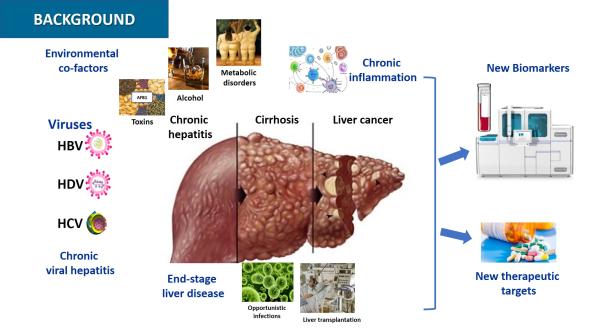Unraveling the Connection: Viral Hepatitis and Liver Cancer Risk | |||
 1,398 1,398  0 0  0 0 | |||
| Chronic infection with hepatitis B (HBV) and hepatitis C (HCV) viruses are major risk factors for liver cancer, specifically hepatocellular carcinoma (HCC). These viruses cause long-term liver inflammation and damage, leading to cirrhosis (scarring of the liver), which significantly increases the risk of developing HCC. The inflammation caused by the viruses promotes cell mutations and regeneration, increasing the likelihood of cancerous cells arising and progressing. While not all individuals with chronic HBV or HCV will develop liver cancer, these viral infections are considered the most significant preventable causes of the disease globally. The connection between viral hepatitis and liver cancer risk is strong and well-established. Chronic infection with hepatitis B virus (HBV) and hepatitis C virus (HCV) is a major risk factor for developing hepatocellular carcinoma (HCC), the most common type of liver cancer. The relationship isn't direct, but rather a multi-step process: 1. Chronic Inflammation and Liver Damage: Both HBV and HCV cause chronic inflammation of the liver (hepatitis). This persistent inflammation leads to ongoing liver damage, potentially progressing to cirrhosis (scarring of the liver). 2. Cirrhosis as a Bridge to Cancer: Cirrhosis is a crucial intermediary stage. The damaged liver tissue regenerates repeatedly in an attempt to repair itself. This chaotic regeneration process creates an environment conducive to the development of genetic mutations that can lead to cancer. Cirrhosis dramatically increases the risk of HCC, regardless of the underlying cause. 3. Direct Viral Carcinogenesis: While chronic inflammation is the primary driver, some evidence suggests that HBV and HCV can directly contribute to carcinogenesis (cancer development). HBV DNA can integrate into the host's genome, potentially disrupting gene function and promoting cancer growth. HCV proteins can also interfere with cellular processes, contributing to the carcinogenic process. 4. Other Factors: The risk of developing HCC in individuals with chronic viral hepatitis is also influenced by other factors, including:
In summary, chronic HBV and HCV infections significantly increase the risk of liver cancer primarily through chronic liver inflammation leading to cirrhosis. While the viruses can also directly contribute to cancer development, cirrhosis acts as a critical intermediary step in the process. Regular screening and vaccination (for HBV) are crucial for preventing and managing this risk.
Tags: HBV HCV Hepatitis B Hepatitis C Liver cancer Prevention Public health Screening Viral hepatitis | |||
| |||
| | |||
|
 3350
3350 